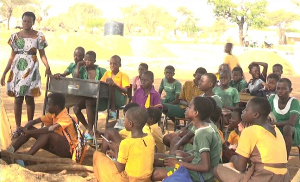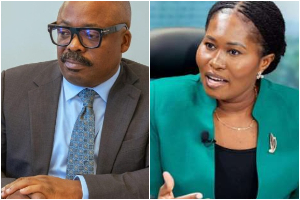On Sunday, August 18th, the New Patriotic Party (NPP) unveiled its 2024 manifesto, setting the stage for transformative changes in various sectors, including education. As a teacher, it is heartening to see the emphasis placed on enhancing the educational landscape of Ghana.
The promises made by the NPP in the education sector are not only ambitious but also crucial for addressing key challenges and paving the way for a brighter future. Here’s a closer look at some of these promises and their significance.
1. Recruitment of More Special Needs Teachers
The 1992 Constitution of Ghana in Article 25.1(a) states: “all persons shall have the right to equal educational opportunities and facilities and with a view to achieving the full realisation of that right, basic education shall be free, compulsory and available to all”. Ghana’s commitment for an inclusive society, led to the enactment of the Disability Act
2006 (Act 715). Article 18 of the Act states that: “The Government shall: provide free education for a person with a disability, and establish special schools for persons with disabilities who by reason of their disability cannot be enrolled in formal schools”.
One of the standout promises in the manifesto is the recruitment of more special needs teachers. This commitment is a vital step towards inclusive education in Ghana. Special needs students often require tailored teaching methods and support to thrive academically, and having more specialized teachers will ensure that these students receive the attention and resources they need.
Data from the 2021 Population and Housing Census (PHC) shows that of the 7,794,740 children aged 5-15 years, 219,022 have difficulty in performing activities. Out of those with difficulty in performing activities, 35,609 have never attended school. Globally, there are an estimated 240 million children with different types of disabilities (UNICEF, 2021).
These children like any other child, have ambitions and dreams for a better future. This move aligns with the global push towards inclusive education and demonstrates a commitment to leaving no child behind, regardless of their abilities.
According to UNESCO, inclusive education is essential for ensuring that all students, including those with disabilities, have equal access to quality education ("Inclusive Education," 2021).
2. Incentives for Teachers to Purchase Vehicles
The promise to offer incentives for teachers to buy vehicles with an engine capacity of up to 1,800 cubic centimetres (cc) is a thoughtful and practical initiative.
Transportation challenges are a significant issue for many teachers, particularly those working in remote areas. Transportation difficulties are a well-documented issue in Ghana's education sector, often leading to teacher absenteeism and tardiness ("Teacher Absenteeism in Ghana," 2019).
By making it easier for teachers to own vehicles, the NPP is not only improving their quality of life but also enhancing their ability to commute to schools more efficiently. This can lead to improved punctuality and attendance, ultimately benefiting students and contributing to a more stable learning environment.
3. Establishment of a National Robotics, Engineering, and AI Lab
In a rapidly evolving world where technology plays an increasingly central role, the establishment of a National Robotics, Engineering, and AI Lab is a visionary promise. According to the World Economic Forum, skills in robotics and artificial intelligence are among the top competencies needed for future job markets ("The Future of Jobs Report," 2020).
By collaborating with educational institutions and leading tech firms both locally and globally, this initiative aims to equip young Ghanaians with cutting-edge skills in robotics, engineering, and artificial intelligence.
Such a lab will serve as a hub for research and training, fostering innovation and preparing students to compete on a global scale. This is a critical investment in the future, as it positions Ghana to be at the forefront of technological advancements.
4. Free Tertiary Education Scholarship for PWDs
Introducing a Free Tertiary Education Scholarship for Persons with Disabilities (PWDs) is a commendable promise that addresses the financial barriers often faced by this group. Education is a powerful tool for empowerment, and by removing financial obstacles, the NPP is ensuring that PWDs have equal opportunities to pursue their educational goals.
This initiative not only promotes inclusivity but also helps to build a more equitable society where everyone has the chance to succeed. Data from the Ghana Statistical Service (2019) indicates that PWDs are underrepresented in tertiary education, largely due to financial constraints.
This scholarship program not only promotes inclusivity but also aligns with Ghana’s commitment to the Sustainable Development Goals, particularly Goal 4, which aims to ensure inclusive and equitable quality education for all ("SDG 4: Quality Education," 2020).
5. National Service Exemption for Employed Graduates
The promise to exempt graduates who have secured jobs from national service is a pragmatic approach to streamlining the transition from education to employment. For many graduates, the mandatory national service can be a hurdle, especially when they have already secured employment.
This exemption will allow them to start their careers without delay, contributing to the economy and reducing the unemployment rate among young people. According to the Institute of Economic Affairs (IEA), youth unemployment remains a significant challenge in Ghana, and any policy that facilitates quicker entry into the job market is beneficial ("Youth Unemployment in Ghana," 2021).
This exemption policy could help reduce graduate unemployment rates by allowing employed graduates to bypass the mandatory service and start contributing to the economy immediately.
6. Continued Development of Educational Infrastructure
According to the Ministry of Education's 2022 report, the Free Senior High School (SHS) policy has led to a significant increase in student enrolment, putting pressure on existing infrastructure ("Education Sector Performance Report," 2022).
By investing in additional facilities, the NPP is ensuring that schools can meet the growing demand for quality education. The commitment to continue developing additional infrastructure for educational institutions is crucial for accommodating the increasing number of students. As access to education improves, it is essential to ensure that the physical infrastructure can support the growing student population.
This promise reflects a forward-thinking approach to educational planning, ensuring that students have the necessary facilities to learn effectively.
The promises outlined in the NPP’s 2024 manifesto represent a comprehensive approach to improving education in Ghana. By addressing the needs of special needs students, supporting teachers, investing in technological advancements, promoting inclusivity, and enhancing infrastructure, these initiatives have the potential to significantly uplift the educational sector.
As a teacher, I am encouraged by these promises and look forward to seeing how they will be implemented to create a brighter future for all Ghanaian students.
Opinions of Monday, 23 September 2024
Columnist: Habib Mandeya Abukari















